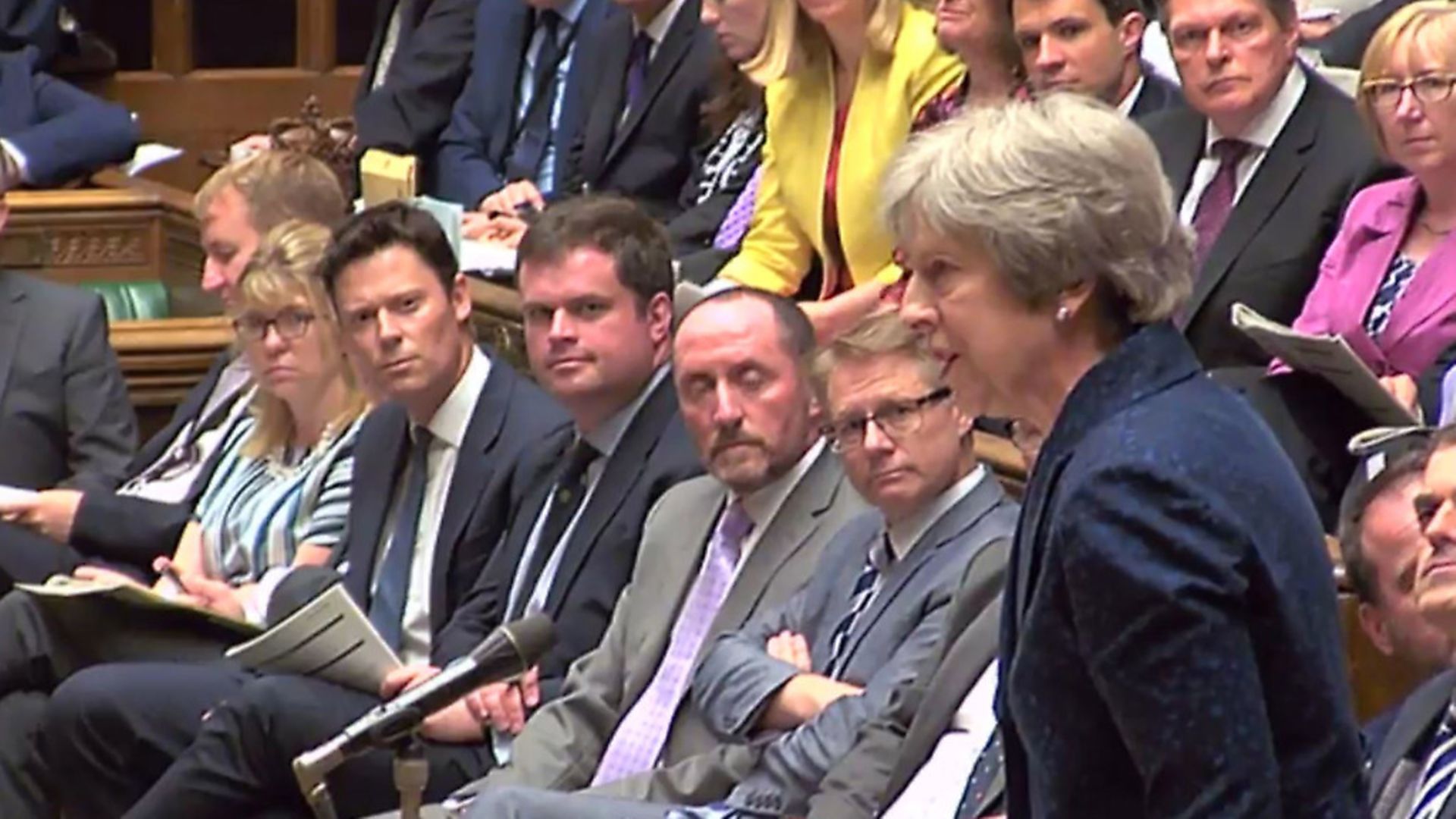
The showdown in parliament may end in a tactical victory for the government, but it represents yet another tragic strategic defeat, says ANDREW ADONIS.
Theresa May’s High Noon is next Tuesday, when the Lords’ amendments to the EU Withdrawal Bill are considered by the Commons.
A political shoot-out beckons on the European single market and customs union. It has been long coming, and it is a battle, if not between good and evil, then between equally stark forces of sense and nonsense.
Dominic Grieve, sheriff of an increasingly lawless Westminster, even looks like Gary Cooper. As with the character Will Kane in the original, he is standing up for law and order while everyone else who should be rallying to the cause – notably Her Majesty’s Official Opposition – finds excuses to be elsewhere. My friend Jeremy Corbyn resembles the guy in the film who is so terrified of the returning gangster that he hides in his house and sends his wife (aka Sir Keir Starmer) to the door to tell Kane he is not at home.
Unfortunately, Tuesday is High Noon in another respect. The period of the entire drama lasts only a short time and there isn’t much dialogue, just a very bloody conclusion.
Attlee said that democracy is ‘government by discussion’. May doesn’t believe in discussion, maybe because she isn’t any good at it. We are still in the absurd world of ‘Brexit means Brexit’, a poor slogan for day one of this great crisis, and ludicrous for what is soon to be year three.
So the government is giving MPs only a few hours to consider more than 200 Lords amendments to the EU Bill, 15 of which were so controversial – including on the customs union, the single market, what is to happen in the event of ‘no deal’, and big curbs on the government’s ability to use Henry VIII powers to override parliament – that they were carried against the government after long debate and huge votes in the Lords.
MPs aren’t even being given a full day. About half of Tuesday’s sitting will be occupied by a timetable motion and a long succession of votes not only on the key Lords amendments but also on complicated counter propositions like Jeremy and Sir Keir’s proposal that it should be ‘a’ negotiating objective to stay in some kind of ‘internal market’ but without making it ‘the’ objective to stay in the single market, which happens to be the only European ‘internal market’ which actually exists.
All this would be outrageous if it were not par for the course in the government’s determination to dodge parliament, going back to the original Article 50 invocation. Article 50, recall, only went through a parliamentary process of any kind because of Gina Miller and the Supreme Court.
What will be the impact of May’s latest shenanigans? Tactically, she may score; but strategically she has further undermined Brexit.
The tactical shrewdness is obvious in forcing MPs to vote back-to-back, through the night, on a string of complex motions. This makes it hard to organise and sustain opposition, particularly on the government’s own back-benches. There will be little opportunity for Sheriff Dominic or anyone else to make arguments issue by issue. This ruse will have been dreamed up in the government whips office and they will be chuckling at their ingenuity.
But strategically it is an own goal. Railroading this historic legislation will stoke even more resentment on all sides of the Commons at the shameful way parliament is being treated. It will also embolden the Lords to resist further, now and in future. I have already written my speech on how the Daily Mail, in branding the Lords ‘enemies of the people’, gave more coverage to the issues than the House of Commons because Paul Dacre was not stinting in his column inches, unlike May and parliamentary debate.
More important than any of this is the steady undermining of any pretence that Brexit is about the mother of parliaments ‘taking back control’ from unelected Brussels.
It is steadily clearer – and steadily more apparent to the country – that Brexit is a power grab by neo-Thatcherites, led by Thatcher worshippers Farage, Lawson and Rees-Mogg, whose essential objective is ‘Thatcherism in one country’.
All this is set out in my book with Will Hutton, Saving Britain: How we must change to prosper in Europe, published this week. Our royalties are going to fund teenagers from disadvantaged families to work or volunteer on the continent or Ireland as ‘Europe awards’.
And all this steadily builds up the argument for a People’s Vote on the Brexit terms, which is looking increasingly likely. For as High Noon approaches, two things are now obvious. Brexit has little to do with parliamentary democracy. And parliament itself is barely allowed to debate it.
Warning: Illegal string offset 'link_id' in /mnt/storage/stage/www/wp-includes/bookmark.php on line 357
Notice: Trying to get property 'link_id' of non-object in /mnt/storage/stage/www/wp-includes/bookmark.php on line 37






